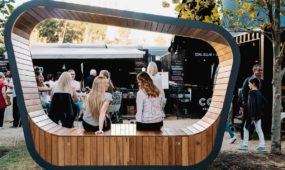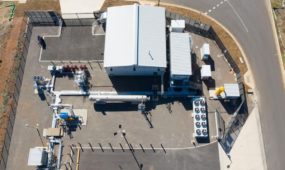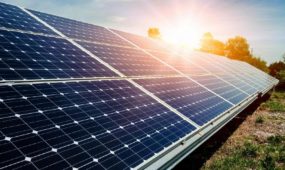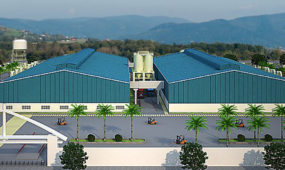IoT sensors to detect wind turbine damage in real time
Renewables
Acoustic sensors that measure the health of wind turbines and use the Internet of Things for real-time reporting are being developed in South Australia.

Sign up to receive notifications about new stories in this category.
Thank you for subscribing to story notifications.
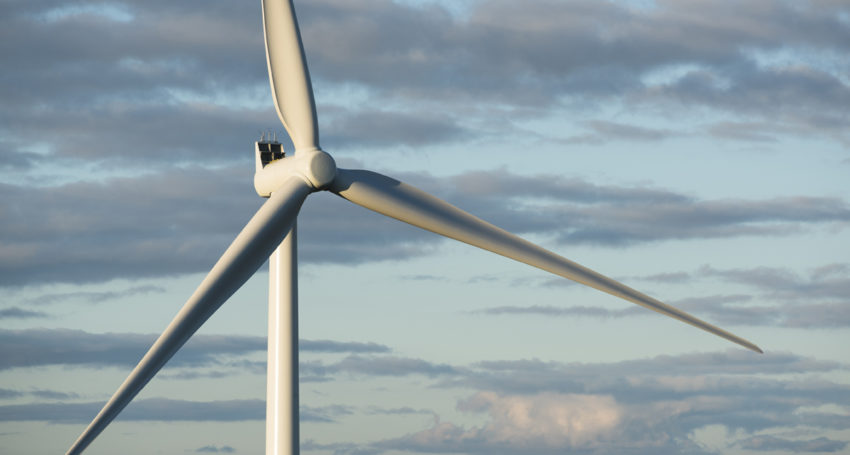
Startup company ping.services will field test its first devices at Snowtown Wind Farm in South Australia next week and aims to have its first commercial units available at the beginning of 2019.
The device, known as ping.monitor, is conical, about the size of a soccer ball and sits on a two-metre pole alongside a wind turbine. The device has its own power supply and communication network and can operate independently of the turbine.
There are more than 350,000 active wind turbines in the world with blades up to 80-metres long that spin up to 300km/h.
Ping CEO Matthew Stead said there were 3800 blade failures per year causing up to $5 billion damage.
He said sources of damage included lightning strikes, hail, sand, rain and accelerated wear in coastal environments.
“Our product is a listening device that listens to the wind turbine and if damage occurs to the blade it can then alert the owner and they can come out and repair it,” Stead said.
“We measure the aero acoustic signature, (which) are completely different for a blade that is in good health and one that is damaged.
“It’s got it’s own power and satellite communication so it doesn’t even need the tower for communication purposes, it talks to the satellite and alerts the owner that way.”
The key piece of technology in the patented device is the algorithm that can rate the health of the turbine based on its acoustic signature on a scale of one to 10 and monitor changes over time.
Ping has been working with Flinders University in Adelaide on the design and is also looking to partner with fellow South Australian start-up Myriota, which specialises in remote sensing and satellite communication using IoT technology.
The device’s conical design protects the microphone from rain and debris such as bird droppings and also blocks out ground level noise such as wind.
“We shield out the local wind noise but we can still hear the turbine – we worked out a housing that measures the noise from above without the noise from ground level,” Stead said.
“The real benefit is reduced maintenance costs by detecting problems early before they develop into a complicated repair.
“Currently these turbines are being checked by climbers on ropes, drones or cameras once a year so it’s pretty manual with a high labour content.
“The whole point of what we do is it’s continuous and low cost.”
Ping will offer the product commercially on an annual subscription basis under a hardware as a service (HAAS) model.
Stead travelled to Denmark earlier this month to discuss the ping.monitor with leading wind turbine manufacturers.
He also plans to test the device on turbines in Boulder, Colorado, next month.
“Our plan is to go to a Version 1 next year and once we’ve released that we’ll look for some investment to develop Version 2,” he said.
“The next version will be more intelligent, providing much more information around where the defect is, the type of defect and that’s where we need investment for the research.”
South Australia leads the nation in the uptake of wind energy with renewable sources accounting for more than 40 per cent of the electricity generated in the state.
Stead said this made the state’s capital Adelaide an ideal place to develop complementary technology.
Ping.services was last year spun out of Resonate Consultants, an Adelaide-based acoustic engineering consultancy with offices around Australia and in Dublin.
Stead, who is also CEO of Resonate, said Ping was about creating acoustic engineering products whereas Resonate focused on providing services.
Ping is also working on a software calculation tool for the acoustic engineering industry and has partnered with Auckland-based company Dotterel Technology to create a noise-measuring drone to conduct testing in difficult to access locations such as mining sites or power stations.
Stead has this year been part of Flinders University’s Venture Dorm program through its New Venture Institute. Last week he won a silver award and scholarship in a pitch competition run by the New Venture Institute, which will expose him to a number of opportunities to help him fast track the product.
Jump to next article

